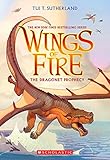Feedback and Learning How to Learn
by FranBeliefs About Learning Executive Function Feedback Learning How to Learn Metacognition Student Voices
Many Ways to Look at Feedback and Executive Function
by FranAddressing Executive Function in and Across the subject areas
Example 1: Reading, Reading Comprehension
EXECUTIVE SKILLS AND READING COMPREHENSION
by Joan Sedita | 1 April 12, 2017 | 0 Comments
https://keystoliteracy.com/blog/executive-skills-and-reading-comprehension/
From Joan Sedita, commenting on a book by Kelly Cartwright
“Executive skills involve regulating one’s own thinking to achieve desired goals…. Sedita goes on to quote from the text 9Guilford, 2015)
“Here is a summary of how these core skills affect reading comprehension (p. 8-9):”
- Cognitive Flexibility: is the ability to shift attention from one activity to another or to actively switch back and forth between important components of a task….
- When reading, skilled comprehenders actively shift focus between many things….
- Working Memory: is the capacity for holding information in mind while working with part of that information
- Inhibition: is the ability to resist engaging in a habitual response as well as the ability to ignore distracting information – i.e., to think before acting..
Cartwright also addresses additional, more complex executive skills:
- Planning: involves setting and working toward a goal
- Organizing: involves ordering and sequencing information or subtasks in ways that support a common goal”
I am also attaching a Metacognitive Interview/Questionnaire I designed for middle school students:
http://explorience.pbworks.com/w/page/19411540/Metacognitive%20Interview
Beliefs About Learning Dialogue Feedback Learning How to Learn Metacognition
Growth Mindset (4M’s) that goes beyond “effort”
by FranOne of the best Growth Mindset postings I’ve read!
Four Teaching Moves That Promote A Growth Mindset In All Readers
By Katrina SchwartzAPRIL 3, 2017Mind Shift
Some short excerpts:
“Most often teachers spend their time assigning what students should read and how they should show what they read, monitoring to make sure students have done what was asked, and making decisions about what students will do and how they will do it. Those roles make the teacher the main driver of the learning. In order to step back from those traditional roles, teachers have to replace them with new strategies.
“There’s a place for those three, but when that’s our main role there isn’t space for ownership and to develop that growth mindset,” Goldberg said. She coaches teachers to think of themselves in four very different roles, and to step back from constantly stepping in when students struggle. A big part of that is making it clear that struggle is part of reading, not a unique experience to students learning to read. It’s common to start a book and be confused, or to read a passage and miss something, but teachers don’t often make it clear how universal that experience is, no matter one’s reading level. Rather than being assignors, monitors and managers, Goldberg coaches teachers to see themselves as miners, mirrors, models and mentors”
I encourage you to watch the 7 minute video where Goldberg teaches us how to be miners, mirrors, models and mentors. The article continues with a description of these 4M roles.
Beliefs About Learning Executive Function Feedback Meta Teachers Student Voices Teacher Suggestions, Stories, Qs








